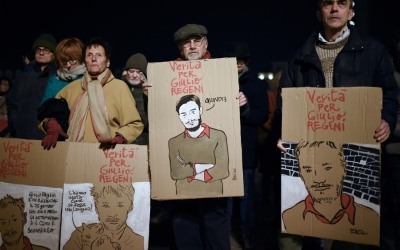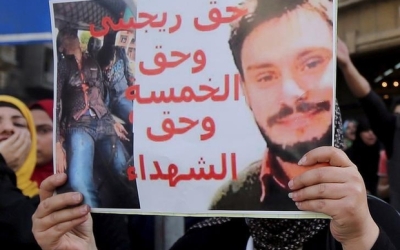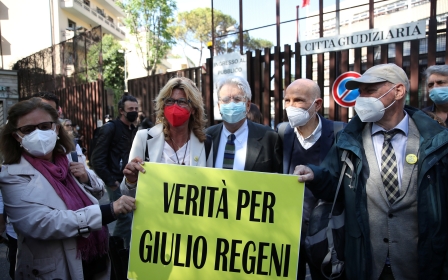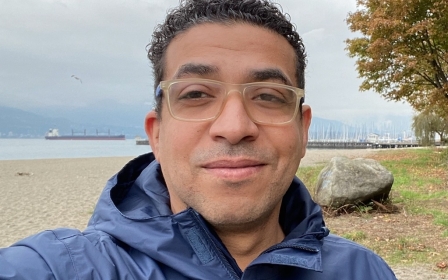Slain Italian student Giulio Regeni's last messages counter Egypt spy claims
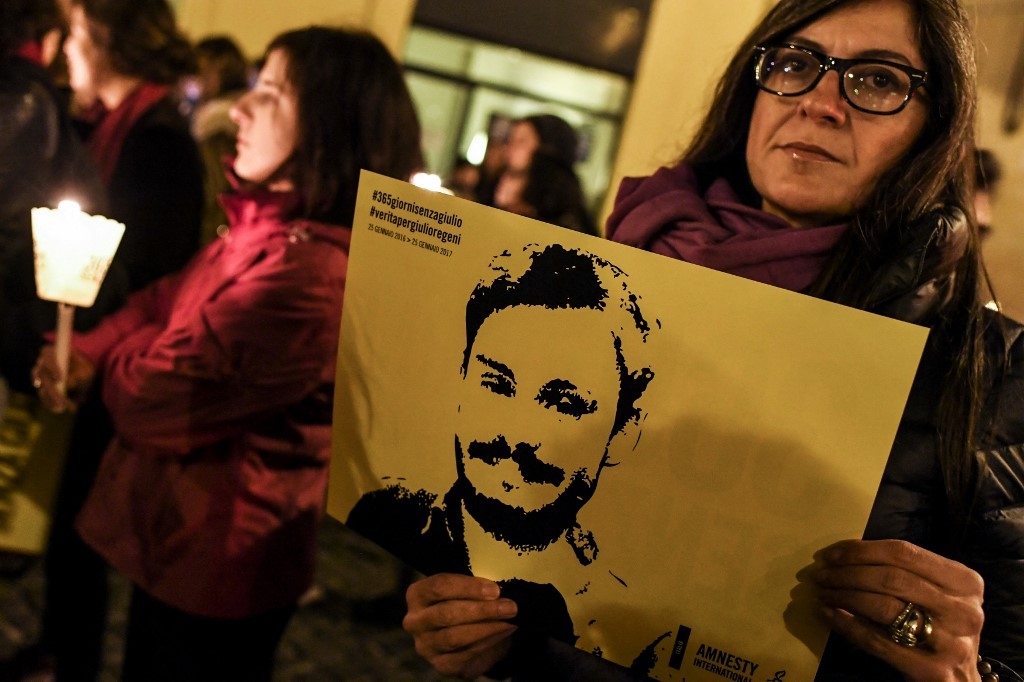
Newly revealed messages sent by Giulio Regeni just before his murder are being hailed as proof that the slain Italian PhD student was not a spy as Egyptian authorities have claimed, but a civilian concerned with Egypt's "new dictatorship".
Facebook messages written by the Cambridge student in the weeks and months before his killing were published by the Guardian on Monday and indicate that Regeni was concerned about the risks he might face doing his thesis on trade unions in Egypt, long considered a sensitive subject in the country.
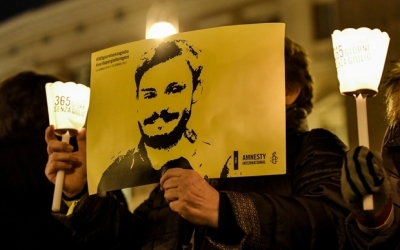
New MEE newsletter: Jerusalem Dispatch
Sign up to get the latest insights and analysis on Israel-Palestine, alongside Turkey Unpacked and other MEE newsletters
Still, according to the messages, the 28-year-old feared that he would be deported before he could finish his research, not murdered.
"Egypt is in a difficult state right now," he wrote in messages shared with the Guardian by his friend.
"The dictatorship is back and until recently it wasn’t clear how brutal it was going to become. It seems that it's 'stabilising' now… this state of affairs is very precarious," he said, referring to President Abdel Fattah el-Sisi's new government.
Regeni was discovered dead in January 2016, dumped semi-naked on the side of the Cairo-Alexandria highway. His body showed that he had been beaten, burned, and stabbed before his neck was broken after he was struck from behind with a heavy, blunt object. Experts have indicated that the nature of his torture and eventual murder points to Egyptian intelligence agents as the likely culprits.
Surveilled and harassed
Regeni decided to research his thesis in Cairo from September 2015 to March 2016 after studying Arabic and politics at Leeds University.
A month after his arrival, he described trade unions as "the only remaining force in civil society", the Guardian reported, citing the Facebook messages.
Regeni had focused his research on street vendors, which had just seen a 6 million person strong union be established to combat government crackdowns.
In the messages, Regeni said the situation in Cairo was "depressing, but not manic like 2013".
"This doesn’t feel like it's going to be another 30 years," he added, in reference to the length of army leader Hosni Mubarak's administration.
Regeni grew concerned, however, when, during a meeting with union activists, he saw a veiled young woman taking a picture of him on her phone, making him fear that he was under surveillance.
According to the messages, Regeni had also become irritated by vendors asking him to provide mobile phones. A video first aired by an Italian news website nearly a year after his murder also showed the union's head, Mohamed Abdallah, asking for money for family medical bills.
"My wife has a cancer operation, I will do anything as long as there is money in it," Abdallah said on the video, to which Regeni, also speaking Arabic, refused.
"Mohamed, I cannot use the money because it is not my money. I cannot use it like that because I am an academic. I cannot tell the institution in Britain in the application that I want to use the money for personal reasons," Regeni responded.
Abdallah then reported Regeni to the police, later claiming he thought he was a spy.
Five days before he was taken, in one of his last Facebook messages, Regeni asked for help with his English in a paper he had written.
Italy presses charges
Last month, an Italian judge ordered four senior Egyptian security officials charged in the torture and killing of Regeni to stand trial, following an investigation.
Italian prosecutors announced in December that they would plan to seek charges against the four security officers, after a month earlier Egypt's public prosecutor temporarily closed the file on the murder case of Regeni, saying that authorities had failed to identify a suspect and that Italy’s accusations were based on "insufficient evidence".
While Sisi, in an interview with the Italian newspaper La Repubblica in March 2016, had vowed to launch an investigation, the Egyptian government later claimed that a gang was responsible for the student's death and that they had all been killed.
Italian authorities expressed outrage over the claim, lambasting Egypt for non-cooperation.
A report released in La Repubblica in 2019 also revealed that Egyptian police had believed Regeni to be a spy, as the newspaper quoted a witness who overheard an Egyptian intelligence agent speaking about "the Italian guy".
The conversation reportedly took place at a police convention in an unnamed African country in 2017 and was related to Italian prosecutors.
"We thought he was an English spy, we picked him up, I went and after putting him in the car we had to beat him. I myself hit him several times in the face," the intelligence agent said at the time.
Amid the Egyptian government's repeated obstructions and denials that its officials were behind the murder, and despite the Italian judge's order, the Egyptian security officers charged in Italy will likely be tried in absentia.
Middle East Eye delivers independent and unrivalled coverage and analysis of the Middle East, North Africa and beyond. To learn more about republishing this content and the associated fees, please fill out this form. More about MEE can be found here.


